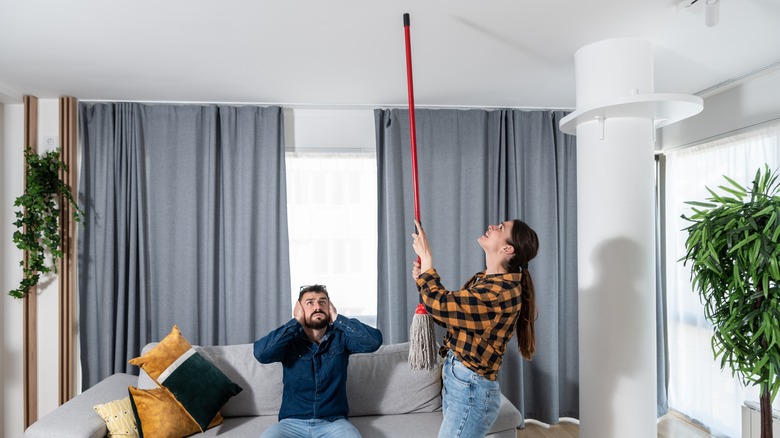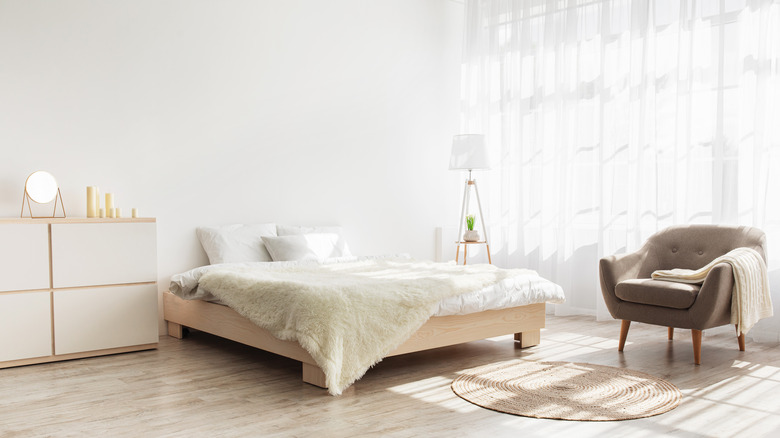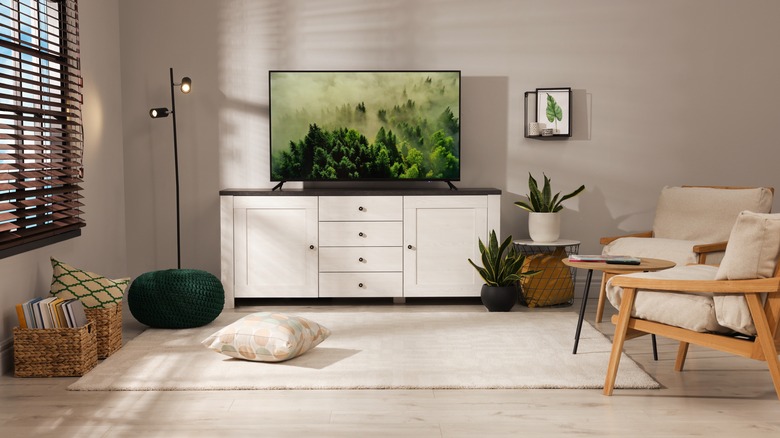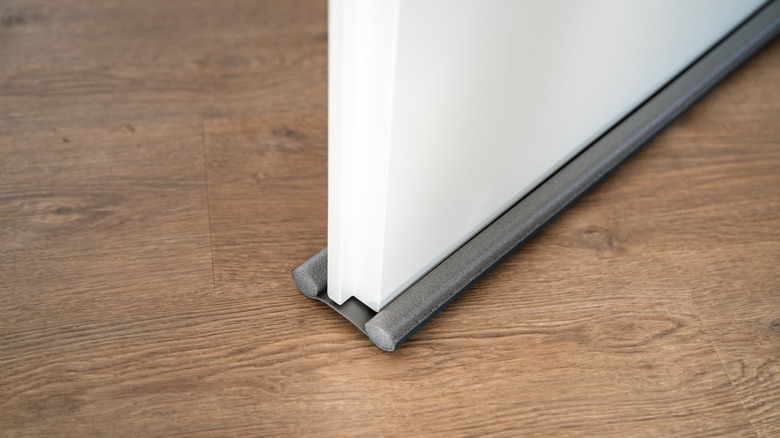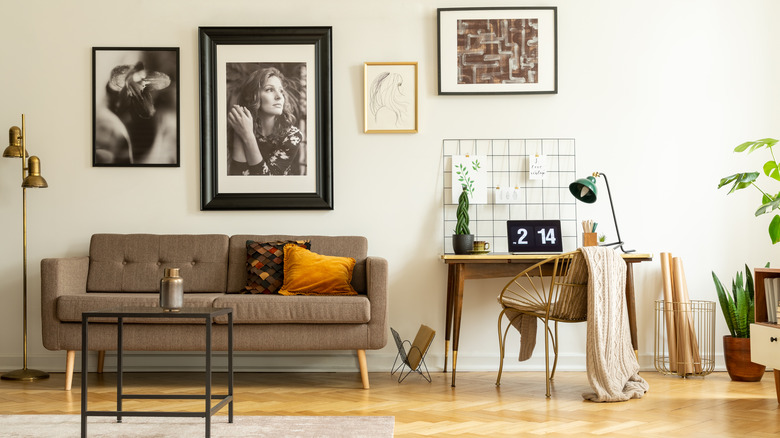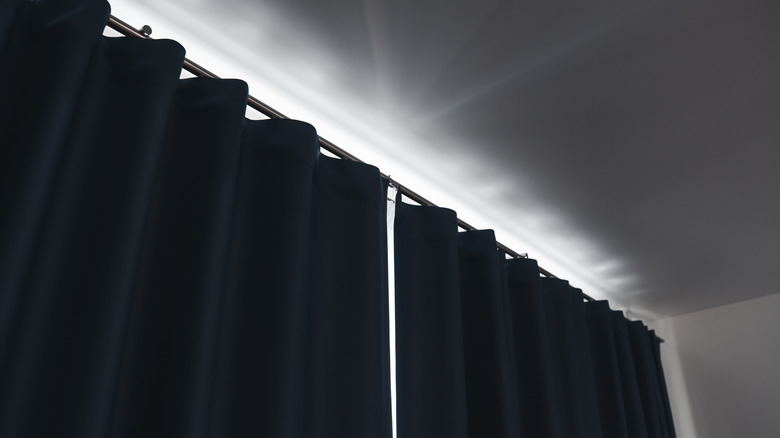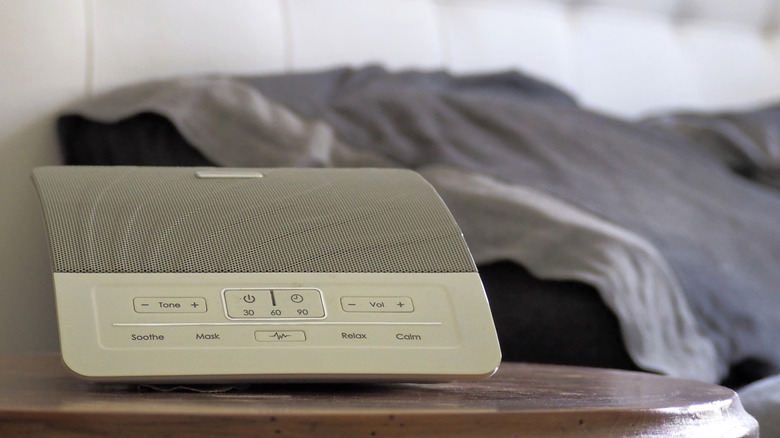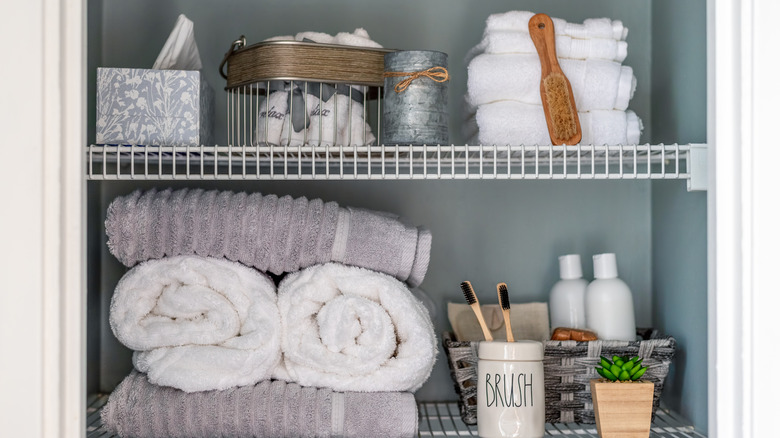10 Simple Tricks For Dealing With Noisy Upstairs Neighbors
Moving into a new apartment can be exciting; you get to decorate a new space and meet new people. However, one downfall to living so close to others is they could be loud, whether they play blaring music, own pets, constantly have people over, or are just heavy-footed. It's annoying to deal with noisy neighbors, especially during the week if you work from home or are just trying to get a good night's sleep.
While there's no law that legally forces neighbors to be quiet, there are ways to keep them from continuously being loud. According to legal advisers at Nolo, if your neighbors repeatedly disturb you, you can sue them in court. Of course, you'll need proof that they disrupted the peace in countless moments. You might be able to receive money for damages from your neighbors, which is sure to make them more aware of their volume. However, it can be time-consuming and inconvenient to go through the legal process. Otherwise, you can check the fine print of your lease to figure out the rules around noise levels in your building. If your landlord can't offer any solutions, we know a few tricks for dealing with noisy upstairs neighbors without having to cause a confrontational scene.
Add more furniture
When there's a vast amount of emptiness in a room, the noise entering the space becomes louder. Adding more furniture can prevent the sounds from bouncing off the walls and causing them to echo. A few large furniture pieces to incorporate in your bedroom include a vanity, lounge chair, desk, or bookshelves.
Add a rug
Rugs are perfect for absorbing noise. Of course, some apartments don't have wall-to-wall carpet installed, so adding an extra layer with a large area rug will keep things quieter. Opt for thicker rugs which work better to dampen the noise. You can layer multiple area rugs over each other for a bohemian feel.
Use a door draft stopper
Who would've thought that the tiny crack between the door and floor could let in so much noise? Well, it can, and using a doorstopper is a handy way to prevent drafts and noise from entering. Placing a couple around the space, like at the front door and the bedroom, will make everything even quieter.
Secure the windows
Like the door, small openings in the window go unnoticed but allow sounds to seep inside from the street and upstairs neighbors if they have theirs open too. The best way to keep the windows sealed is by caulking the frames and casings. Use inserts to keep the sound out if you're not allowed to caulk them.
Hang wall art
Hanging wall art is another way to keep out the neighbor's noises. Wall art absorbs noise, like the rugs; adding a foam layer to the backside creates an extra barrier. There are various styles of wall art décor that can match the interior of your apartment and block out that unwanted racket.
Hang soundproofing curtains
Besides sealing the window completely, hanging sound-reducing curtains will also help absorb noise. These curtains are thick and heavy. They're also great for keeping the light out and preventing any heat from escaping. These curtains come in a variety of different colors and lengths to fit the style of your place and the size of your windows.
Buy a white noise machine
Using a white noise machine will replace the disturbances from upstairs with calming and relaxing sounds. You can pair the device with earplugs to ensure you don't hear anything past midnight and sleep peacefully. Units are sold at various price points.
Build a linen closet in the bathroom
Hearing the toilet flush in the middle of the night can be enough to wake you up. However, the bathroom often has enough space to add a small linen closet. Even a bath mat or a storage unit over the toilet can help minimize the amount of sound that filters through the wall.
Install ceiling cloud acoustic panels
Acoustic panels are ideal for soundproofing noise, so installing ceiling cloud acoustic panels will keep the upstairs stomping and boisterous conversations out of your apartment. Panels are made in different sizes, shapes, and materials. Since they need to be professionally installed, you'll have to check with your landlord for approval.
Talk to your neighbors
If you've done everything you can to reduce the sounds from your noisy neighbors but it's still loud, try talking to them and asking if they could lower their volume. Sometimes neighbors don't know they're being loud. If they continue to make too much noise, try again with your landlord.
